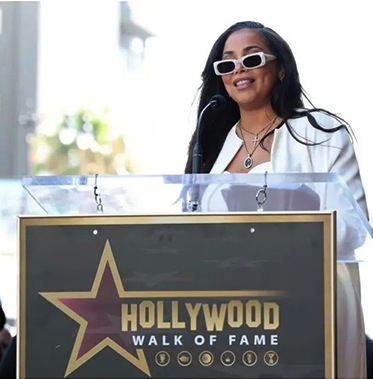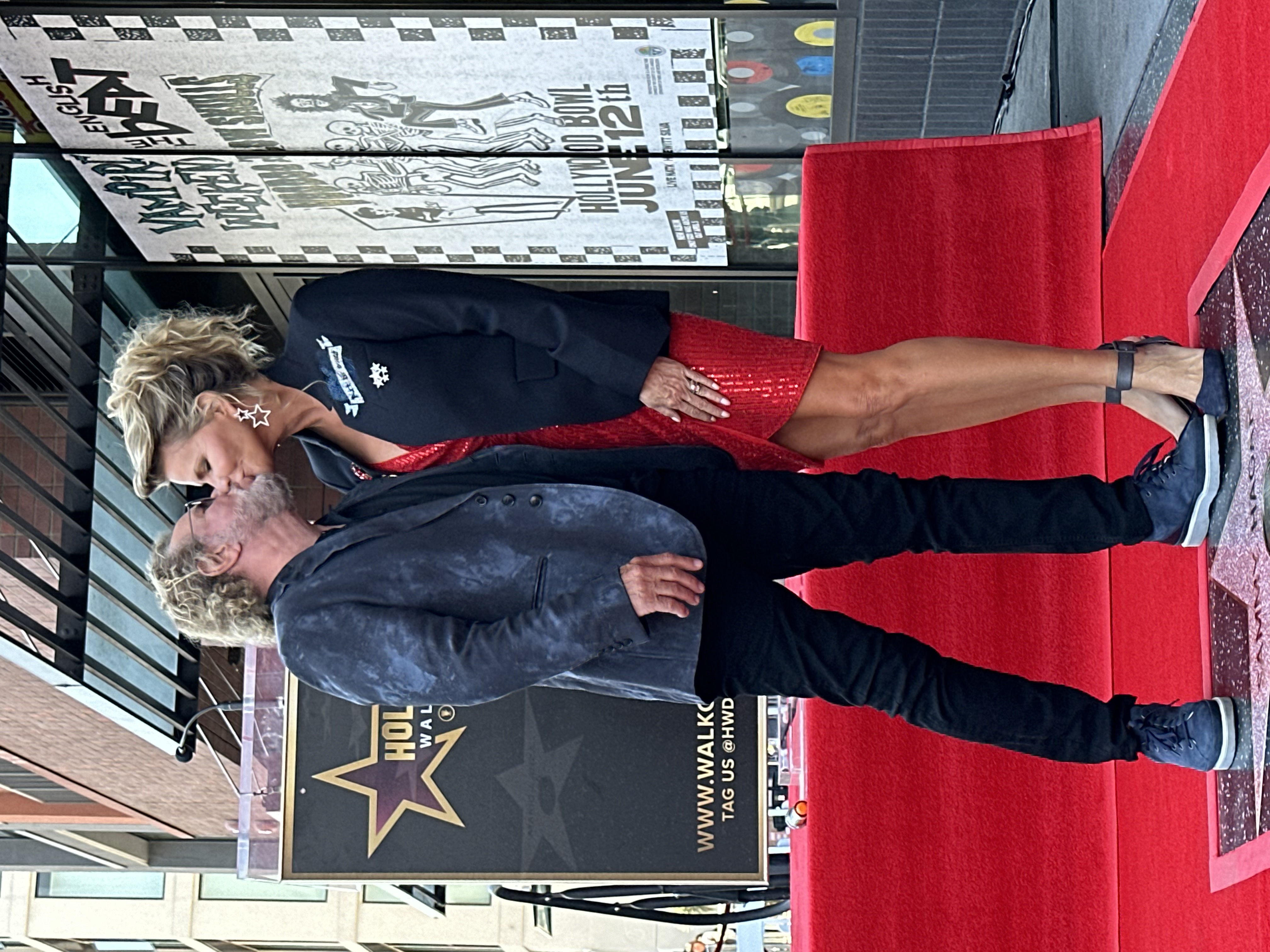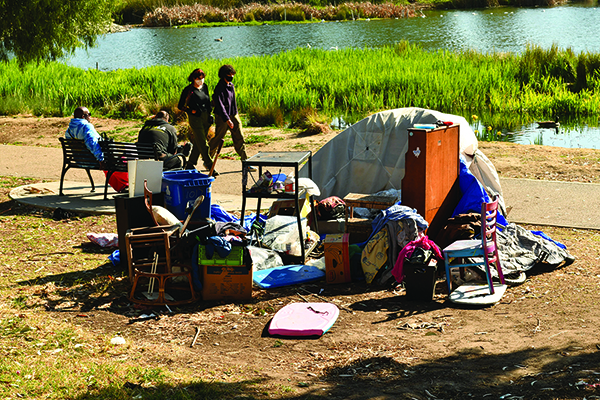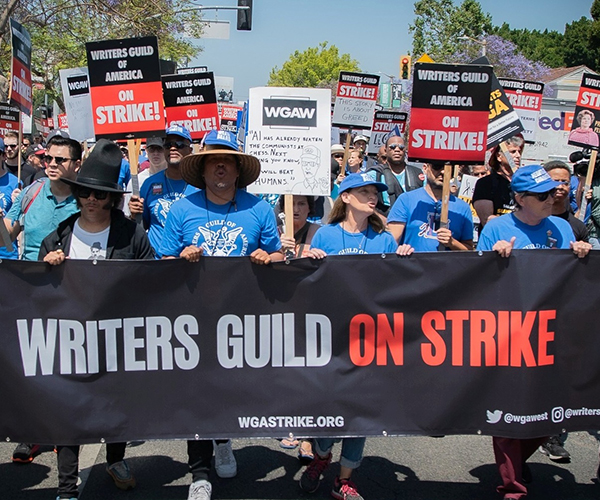LGBT trailblazer Morris Kight honored at cemetery event
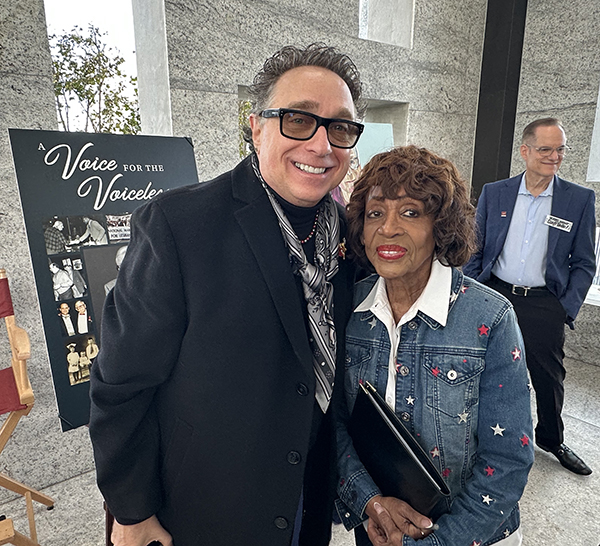
Stephen J. McCarthy, former board member of the AIDS Healthcare Foundation, greets U.S. Rep. Maxine Waters at an event Nov. 22 honoring Morris Kight, an LGBT trailblazer who died in 2003. In background is Michael Weinstein, AIDS Healthcare Foundation president.
Photo by Lorenzo Gomez
Wave Staff Report
HOLLYWOOD — The AIDS Healthcare Foundation hosted a remembrance and inurnment ceremony for LGBT legend Morris Kight Nov. 22 at the Hollywood Forever Cemetery. The event came three days after what would have been Kight’s 106th birthday.
Kight died in 2003 at the age of 83 after a prolific career that achieved many of the civil rights he sought and fought so valiantly for.
The longtime Los Angeles resident was born on Nov. 19, 1919, in Comanche County, Texas. Kight graduated from Texas Christian University.
He often cited Eleanor Roosevelt as an influence on his values and his activism. He came to prominence with the Dow Action Committee, protesting chemical weapons manufacturing during the Vietnam War.
In 1969, he and a handful of activists launched the Gay Liberation Front — one of the first such efforts. In 1971, he co-founded the Los Angeles Gay & Lesbian Community Services Center, the first and largest of its kind in the world.
“Morris not only inspired events and organizations, he inspired activists through his loving nature,” said Michael Weinstein, who heads the AIDS Healthcare Foundation, the U.S.’s largest AIDS organization. “He genuinely loved people, and that permeated everything he did. Twenty-two years later, I fondly remember, miss, and appreciate the man and what he taught me and so many others about activism, life and living.”
Weinstein said he was befriended by Kight in 1973.
Rarely satisfied with all he had achieved, Kight created some of the movement’s most visible efforts, including the Los Angeles gay pride march — the Christopher Street West Parade — which he co-created in 1970 and which receives international media attention annually.
- He also created the Morris Kight Collection, which archives thousands of artifacts chronicling the emergence of gay, lesbian, bisexual and transgender civil rights and the Stonewall Democratic Club, whose endorsement is highly prized in California politics.
In 2002, after serving 20 years on the Los Angeles County Human Relations Commission, Morris retired, but continued to speak out on behalf of people in need.
Though most strongly identified with the movement for gay, lesbian, bisexual and transgender rights, Kight consistently allied his energies with many other progressive causes. He described himself as a laborite, a civil rights advocate, a civil libertarian, and an advocate for all oppressed people, Weinstein said.
He often credited the Feminist Movement with inspiring him.
Kight’s tireless activism and political savvy made him a rare bridge between the gay grassroots and elected officials at the local, state and federal levels. Though he never ran for office himself, his political insight was frequently sought by those in power and those who aspire to public service.
Kight foresaw the advances his work would lead to in a 1971 interview with the Advocate magazine:
“Frankly, I’m sure we are going to get our freedom,” he said at the time. “I see it everywhere: In the marketplace, in the stores, in the homes, in dealing with families, in the kind of attention we get from radio, television and the newspapers. … Still, I realize we’re not home yet. We have a long way to go.”
In 2003, Kight spent his final days at Carl Bean House in Los Angeles, a guest of the AIDS Healthcare Foundation, one of the many agencies he nurtured and supported. His papers are housed and maintained at the nonprofit as the Morris Kight Collection.
And at the time of his death, a magnolia tree with a plaque honoring Kight was planted at West Hollywood’s Matthew Shepard Memorial Triangle at the corner of Santa Monica and Crescent Heights boulevards.
In August 2023, after a three-year campaign by the AIDS Healthcare Foundation and other advocates, the Los Angeles City Council declared Kight’s longtime Los Angeles residence located at 1822 W. 4th St. a historic-cultural monument. The designation provides the home with additional protection, stipulating that it cannot be moved and preventing possible razing for future development. Kight’s former residence at 1428 McCadden Place is also a historic-cultural monument.
Following the remembrance and inurnment at Hollywood Forever, a reception honoring Kight was held at the AIDS Healthcare Foundation’s Media Building in Hollywood.


